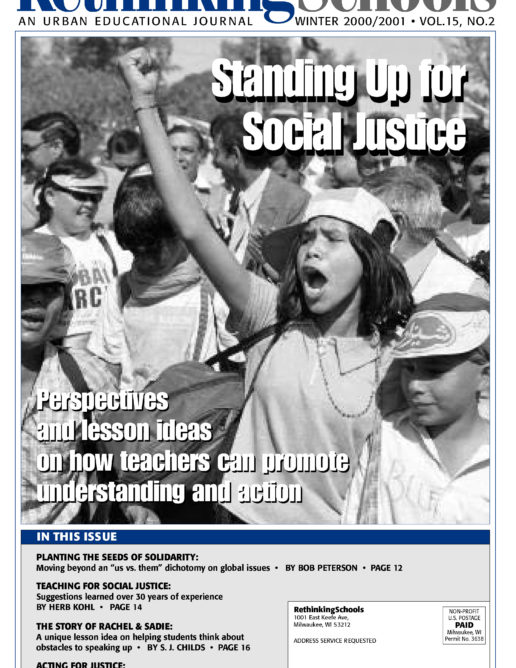Preview of Article:
On Cracking White City
The following oral history, told by James Farmer, explains how the Committee of Racial Equality successfully integrated the Jack Spratt Coffeehouse in Chicago in 1941.
Then I said to her, “Fine, I think that might be the appropriate step.” By the way, we, still following the Gandhian motif, had called the police in advance, being completely open and above board, everything, in notifying the authorities. We called the police department and told then what we were going to do. In fact, we read the state civil rights law to them. They weren’t familiar with that. [Laughs] They assured us that if we followed the pattern which we outlined to them over the phone, there was nothing they could do to arrest us. They’d have no grounds for making an arrest because we were within our rights to insist upon service. And we asked them if they would see that we were served as they were obligated to do by law, but this they would not do. No, they wouldn’t do that, but they wouldn’t arrest us.
POLICE ARRIVE
So we said, “Perhaps you should call the police.” She did. Two cops came a few minutes later, looked the situation over, said, “Why, lady, what did you call us for? I don’t see anybody here disturbing the peace. Everything seems to be peaceful.” She said, “Won’t you throw these people out on the grounds that we reserve the right to seat our patrons and would serve some of them in the basement?” The cop didn’t know. He went to a telephone booth and made a call. I guess he was calling headquarters to see if they could do that. He came out and said, “Nope, sorry lady, there’s nothing in the law that allows us to do that. You must either serve them or solve the problem yourself.” And the cops then walked out. On the way out they turned around and winked at us. [Laughs]
We stayed there until closing time and then got up and left and went back the next day, a little bit earlier, and stayed until closing time. And so on. They then tried again to negotiate – without success. We went back in, oh, several more times and tied up the whole afternoon, tied up all the seats. They were doing no business at all.
Finally they cracked. The next time we went in, they served everybody. And accepted money. Did not overcharge us. We then sent an interracial group, a smaller group, in the next day. Everyone was served. We then sent an all-Black group in and they were served. We waited a week and sent another Black group in, and they were all served. We sent individual Blacks in and they were all served without any problem. So we then wrote them a letter thanking them for their change in policy.
Winter 2000 / 2001
[% INCLUDE /zglobl/subscribe.htm %]
CONTENTS
Vol. 15, No. 2 </p

